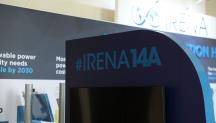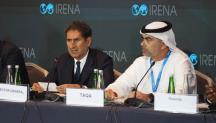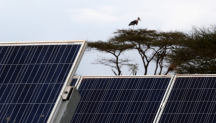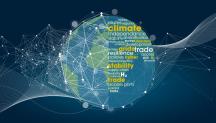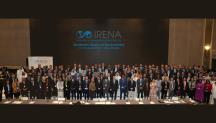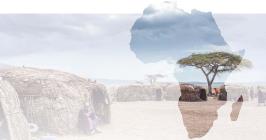
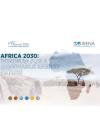
-
-
IRENA (2015), Africa 2030: Roadmap for a Renewable Energy Future. IRENA, Abu Dhabi. www.irena.org/remap
Copied
/-/media/Files/IRENA/Agency/Publication/2015/IRENA_Africa_2030_REmap_2015_low-res.pdf?rev=44aa8c1aacc144f2a46c587def52d846
Copied
Africa 2030: Roadmap for a Renewable Energy Future
Newsletter
African countries need to meet fast-growing energy demand and extend modern energy services to more communities while also improving people’s health and ensuring long-term sustainability. The continent could meet nearly a quarter of its energy needs through the use of indigenous, clean, renewable energy by 2030, according to this report by the International Renewable Energy Agency (IRENA).
Africa 2030 – part of IRENA’s global REmap analysis – provides a comprehensive roadmap for Africa’s energy transition. The report identifies options amounting to nearly 10 exajoules – the equivalent of more than 341 million tonnes of coal – for sustainable development through renewable energy. Roughly half of this would come through biomass-based heat applications, which will progressively displace unsustainable and unhealthy traditional biomass combustion.
Renewable energy capacity additions could increase the share of modern renewable energy technologies in the power sector to 50% by 2030, reducing carbon dioxide emissions by more than 310 megatonnes. Amid record-low electricity prices from solar and wind energy, developing such projects has become more cost-effective than ever before.
The report recommends 14 actions to accelerate the continent’s renewable energy uptake. These include adopting enabling policies, a regulatory framework to catalyse investment, measures to attract investors, and promoting off-grid renewable solutions to increase energy access and reduce poverty.
Africa 2030 is built on a country-by-country assessment of supply, demand, renewable energy potential, and technology prospects. At the global level, REmap 2030 provides a roadmap to double the share of renewables in the world’s energy mix.
The report was released on the sidelines of the South Africa International Renewable Energy Conference (SAIREC) in October 2015, themed “RE-energising Africa”.
